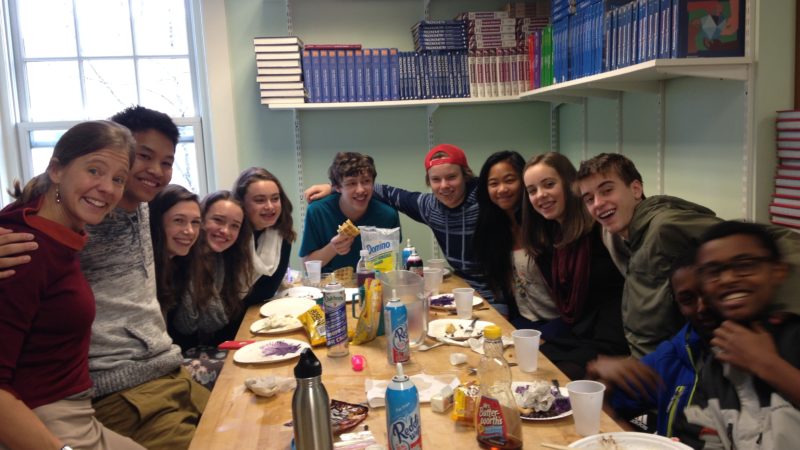Learn to Care – Waynflete’s Student Assistance Program
“It is something to be able to paint a particular picture, or to carve a statue, and so to make a few objects beautiful; but it is far more glorious to care and paint the very atmosphere and medium through which we look, which morally we can do. To affect the quality of the day, that is the highest of the arts.” Henry David Thoreau
Maybe you’ve seen on the streets recently that Waynflete is the place where students “Learn to Learn.” True enough, but the companion bumper sticker that should fit right alongside is “Learn to Care.” Last week in Upper School assembly, two seniors – Dana Peirce and Julianna Harwood – stood before the student body to talk about Waynflete’s ‘Student Assistance Program’, perhaps better known by the common refrain around our community that “no one should find themselves at a dead end holding concerning information.” The Student Assistance Program reminder is usually announced by students each year, and this year’s seniors explained that no one should have to feel they are alone with a problem with nowhere to turn. They encouraged their peers to find “a person that you trust” to talk it over, whether the concern is for a friend or for one’s own self.
Most high schools have a guidance office with an open door policy, but in my experience, it’s more rare to be in a school community where everyone is encouraged to take on that support role as needed. It’s just one more example of how our students shape their own educational experience by practicing what Thoreau calls “the highest of the arts” – influencing the quality of one another’s days by lending a supportive ear. Both seniors went on to say, with the authenticity and authority of having lived with it for four years, that the program really works. According to Dana,
“Having adults that you can talk to without having any sort of formal report makes having those conversations not intimidating at all. Being able to express concerns without any fear of the reaction from an adult makes the program very effective because students don’t hesitate to use it.”
This message is especially important around exam time, when ninth graders head into a full set of five exams for the first time and many seniors, though seasoned at test-taking, are hearing early decision news from colleges to which they dream of heading. Whatever communities they end up in next, our graduates really won’t have fully “Learned to Learn” if they haven’t discovered the value of reaching out when the road gets rough.
Fortunately, they learn to care.



